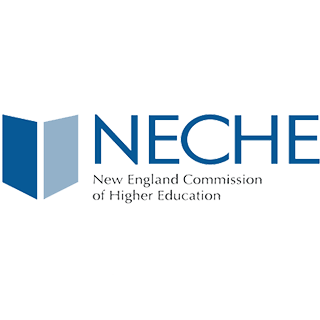SNHU Joins Sigma, Global Nursing Honor Society
Health | 2min Read

Integrate some of today's in-demand knowledge areas – like business, data analysis and computer science – into the ultimate healthcare technology career in the online Master of Science (MS) in Health Information Management (HIM) program at Southern New Hampshire University.
Additionally, the CAHIIM- accredited MS in Health Information Management program also meets one of AHIMA's eligibility requirements to sit for the RHIA exam – which can help you open up even more opportunities for advancement.

Develop practical health information management skills and experiences employers want to see in the master's in health information management program at SNHU. You'll use technology to protect patient data and solve healthcare needs while building on leadership skills, like critical thinking, communication and problem-solving.
This 36-credit online health information management master's degree is the ideal next step for continued study of graduates of the online bachelor's in health information management program or those looking to build on their skills and experience in healthcare.
You'll study advanced topics in information governance, data protection, health informatics, revenue management, compliance and healthcare law, ethics and analytics.
The master’s in health information management program at SNHU is accredited by the Commission on Accreditation for Health Informatics and Information Management Education (CAHIIM). As a CAHIIM-accredited program, our curriculum is built to prepare you for real-world success.
Visit the course catalog to view the full MS in Health Information Management curriculum.
Minimum Specifications:
Additional Information:
SNHU has provided additional information for programs that educationally prepare students for professional licensure or certification. Learn more about what that means for your program on our licensure and certification disclosure page.
Already a credentialed HIM professional? At SNHU, we've identified American Health Information Management Association (AHIMA) certifications with a 1:1 correlation to our MS in HIM courses, helping you earn credits and waive courses with certifications you already have. Having even one of these certifications can save you close to $2,000 in tuition and 2.5 months of time. The 4 AHIMA certifications worth academic credit include:
Learn more about getting credit for HIM certifications.
Our no-commitment application can help you decide if SNHU is the right college for you and your career goals. Apply up until 2 days before the term starts!
Upcoming term starts: July 6, 2026 | September 21, 2026
Attending college online at SNHU can be a life-changing experience. In fact, 93.4% of online students would recommend SNHU according to a 2025 survey with 8,718 respondents.
Our faculty come to SNHU with years of experience — and many of them have been exactly where you are now. Bringing their firsthand perspectives to the classroom, your instructors will share professional insights that support your growth in the field of health information management.

Dr. Lynn Ward joined SNHU with decades of higher education experience and a multifaceted background in health information management. Beyond her role as an associate dean, Ward is a certified online instructor, registered health information administrator and certified professional in healthcare information and management systems. She has presented for the Healthcare Information and Management Systems Society (HIMSS) and American Health Information Management Association (AHIMA).
Position
Associate Dean of Health Professions
Joined SNHU
2016
Education
"The HIM program offers several live synchronous sessions to students. Every term an online virtual program orientation is held for both programs. I also host a Meet the Program Director session once a term."

Hear what some of our SNHU instructors have to say about our online MS in HIM degree program:
"Health information management is a rapidly growing profession with many specialized areas as the implementation of electronic health records increases. This growth will affect those who work in healthcare analysis and big data analysis, in addition to those who work in academic settings. Many HIM professionals do not usually consider working as an educator, but there is a need in this area, and they are prepared to take on these roles."
Andrea Johnson-Mignott, clinical faculty for health professions at SNHU
You’ll take your courses within SNHU’s Brightspace platform. This is where you’ll find your:

At Southern New Hampshire University, you'll have access to a powerful network of more than 400,000 students, alumni and staff that can help support you long after graduation. Our instructors offer relevant, real-world expertise to help you understand and navigate the field. Plus, with our growing, nationwide alumni network, you'll have the potential to tap into a number of internship and career opportunities.
Recently, SNHU has been nationally recognized for leading the way toward more innovative, affordable and achievable education:
Founded in 1932, Southern New Hampshire University is a private, nonprofit institution with over 250,000 graduates across the country. SNHU is accredited by the regional accreditor New England Commission of Higher Education (NECHE), which advocates for institutional improvement and public assurance of quality.
No application fee. No test scores. And no college essay. Just a simple form with basic information. It’s another way SNHU helps you reach your goals sooner.
It's easy, fast and free.
Whether you're applying for an undergraduate or graduate degree, you’ll fill out a form to verify your previous education experience. As part of our admissions process, we'll help you request transcripts from your previous school(s) to see if you can transfer any credits into your SNHU program! (Also for free!)
After reviewing your official evaluation, you can decide if SNHU is right for you! If you choose to enroll, just pick your start date and get ready for classes to begin.
Talk to an admission counselor: 888.327.SNHU | enroll@snhu.edu
SNHU is accredited by the regional accreditor the New England Commission of Higher Education (NECHE). The university also carries specialized accreditations for some programs.
The Health Information Management accreditor of Southern New Hampshire University (SNHU) is the Commission on Accreditation for Health Informatics and Information Management Education (CAHIIM). The university’s accreditation for the Master's degree in Health Information Management has been reaffirmed through 2030. All inquiries about the programs’ accreditation status should be directed by mail to CAHIIM, 200 East Randolph Street, Suite 5100, Chicago, IL, 60601; by phone at 312.235.3255; or by email at info@cahiim.org.


CAHIIM requires accredited programs to provide achievement data which is reported below:
Enrollment: 133
Total number of full time and part-time MS Health Information Management students enrolled in at least one course during the August 1, 2023-July 31, 2024, timeframe.
Student Satisfaction Rate: 85.7%
The percentage of full and part time MS Health Information Management students who responded to the 2024 student satisfaction survey and indicated they were satisfied with their overall educational experience. Out of 73 students surveyed, 7 responded.
Graduation Rate: 43.4%
The percentage of full and part time MS Health Information Management students (first year and transfer) who graduated within 3 years of starting their program. This percentage is based on a cohort of 53 students that reached the 3-year mark between August 1, 2023, and July 31, 2024.
Employment Rate: 100%
The percentage of MS Health Information Management graduates who responded to the 6 months post-graduation survey and indicated they were employed. Out of 24 students who graduated between July 2022- June 2023, two responded to the survey – both were employed.
As a nonprofit university, SNHU offers some of the lowest online tuition rates in the country. And when you work with our Financial Services team, we'll explore ways to help you save even more on your education – and customize a payment plan that works for you.
*before previously earned credits are applied
Tuition rates are subject to change and are reviewed annually.
**Note: Students receiving this rate are not eligible for additional discounts.
Additional costs: Course materials vary by course.
If 3 of your prior learning credits ($659/credit) are accepted toward your master’s degree.
Your remaining tuition cost: $21,747
If 6 of your prior learning credits ($659/credit) are accepted toward your master’s degree.
Your remaining tuition cost: $19,770
If 9 of your prior learning credits ($659/credit) are accepted toward your master’s degree.
Your remaining tuition cost: $17,793
If 12 of your prior learning credits ($659/credit) are accepted toward your master’s degree.
Your remaining tuition cost: $15,816
How we estimate your tuition cost:
We look at the cost per credit multiplied by the number of credits you need to earn for a master's degree. Most master's degrees require 36 credits. SNHU allows you to transfer in up to 12 credits, requiring a minimum of 24 credits to be taken at SNHU. This is only a tuition estimator and doesn't account for other fees that may be associated with your program of choice.
Transfer credits toward your master's degree program at SNHU. If you’ve taken one course or many, we’ll evaluate them for you.
Fill out the FAFSA to see if you’re eligible for grants or work-study. (You could also be offered loans, though you’ll have to pay those back later.)
Earn credits in leadership, technology and more – while taking advantage of an online graduate tuition discount for active-duty service members and spouses.
Getting free money for college – from SNHU or an outside organization – could help you save hundreds or even thousands of dollars.
Bring in credits from popular options like CLEP, Sophia Learning, Google and other common credit for prior learning (CPL) experiences.
Learn how you can save money with tuition reimbursement from your employer.
Take advantage of an online tuition discount through your organization’s partnership with SNHU. Check with your employer to see if your organization partners with us and if you’re eligible for additional tuition savings and partner education benefits.
Whether you're a new college graduate or a long-term healthcare system employee, understanding data systems and analysis can open up career paths that are on track for big growth in the coming years. And with big data being used to inform health interventions and population healthcare approaches, there's a great need for skilled health information managers.
By completing the health information management program at SNHU, you'll prepare yourself for a variety of HIM positions with a specific focus on compliance, privacy or clinical data analysis.
Health information – such as diagnoses, medical histories, lab results, prescriptions and surgeries – is used in more environments than one may expect. This means patient data needs management and protection in many different work environments, including:
Take charge of the maintenance and security of all patient records and data.
Increase nationally in medical and health services managers through 2032, projected by the U.S. Bureau of Labor Statistics (BLS).1
Median annual pay nationally for medical and health services managers as of May 2023, according to the BLS.1 Statistic not based on wage data for SNHU graduates.
Understanding the numbers
When reviewing job growth and salary information, it’s important to remember that actual numbers can vary due to many different factors—like years of experience in the role, industry of employment, geographic location, worker skill and economic conditions. Cited projections are based on Bureau of Labor Statistics data, not on SNHU graduate outcomes, and do not guarantee actual salary or job growth.
As health information management (HIM) continues to expand, so do career opportunities. Professionals in this fieldwork across all healthcare providers and departments – from hospitals, clinics and surgery centers to behavioral health facilities, governmental agencies and even healthcare technology companies.
With a master's in HIM, you can become a leader in a wide array of settings in the field. While overseeing documentation practices is one of the hallmarks of the HIM profession, you'll potentially manage many other key aspects of health information including collecting, reporting, analyzing and protecting health data.
And, since health information management is a program where technology and healthcare coincide, advances in medical technology will continue to change the healthcare industry in the digital age for years to come. This leaves plenty of career opportunities wide open for someone with their MS in HIM.
According to the American Health Information Management Association (AHIMA), some advanced roles within HIM include2:
Read more: What Can You Do with a Healthcare Management Degree?
While both of these career paths aim to transform healthcare through technology and data, there are a few key differences to be aware of.
Health information management focuses on medical records. It's the practice of acquiring, analyzing and protecting digital and traditional medical information vital to providing quality patient care. Think of it as a combination of business, science and information technology.
Health informatics focuses on applied information technology. It's the science that defines how health information is technically captured, transmitted and used. Health informatics focuses on information systems, informatics principles and information technology as it's applied to the continuum of healthcare delivery.
Read more: What is Health Information Management?
While earning your master's in health information management can create new opportunities for you, salaries can range depending on various factors including credentials, experience, industry and job level.
The U.S. Bureau of Labor Statistics reports that master's degree holders earned a median weekly salary of $1,840 in 2024 — that's over 17% more than individuals with a bachelor's degree.1 Looking more closely at careers in healthcare management, specifically, the BLS reported that the median annual pay for medical and health services managers was $110,680 in 2023.1
Going back to school for any degree program takes hard work and dedication, and it depends on a number of factors, including how you learn and where your passion lies. If you enjoy working with data, consider yourself a detail-oriented person who strives for precision and has high regard for ethics and helping others, health information management (HIM) may be the perfect fit for you.
That said, we offer excellent resources, such as academic advising, to make earning your degree as stress free as possible. If something pops up that you can’t figure out on your own, we’ll be there to help you.
Getting your online master's in HIM from Southern New Hampshire University also offers additional perks:
As technology continues to gain momentum in the healthcare world, the demand for highly educated professionals with a background in health information management will only continue to grow — making a master's in HIM a valuable credential.
With a master's degree in health information management, you can be prepared to take on management and leadership roles in an in-demand field. You might work within large healthcare settings, while also being qualified to manage the technology, security and compliance needs of your organization.
At Southern New Hampshire University (SNHU), you'll need to meet our admission policy, which requires a conferred bachelor's degree and a minimum GPA. However, you don’t need to be a medical professional or even have an undergraduate healthcare degree to pursue a health information management (HIM) education.
Whether you’re re-entering the workforce or seeking a new career path, HIM is a broad field open to all experience levels. In this field, you can help others by improving the quality and integrity of health data, provide leadership in the planning, design, selection and implementation of health information technologies, perform data analytics to optimize business operations and manage projects to achieve specific organizational goals.
If you've worked in information technology (IT), management or tech, SNHU can help turn your current skill set into your HIM education foundation.
Health information management is currently filling roles in:
You can build on your existing knowledge and skills as you pursue HIM coursework in several emerging areas in healthcare, including mobile health, data and information analytics, consumer informatics and healthcare policy.
1Bureau of Labor Statistics, U.S. Department of Labor, Occupational Outlook Handbook, on the internet, at:
Cited projections may not reflect local and/or short-term economic or job conditions and do not guarantee actual job growth.
2American Health Information Management Associations (AHIMA), on the internet, at: